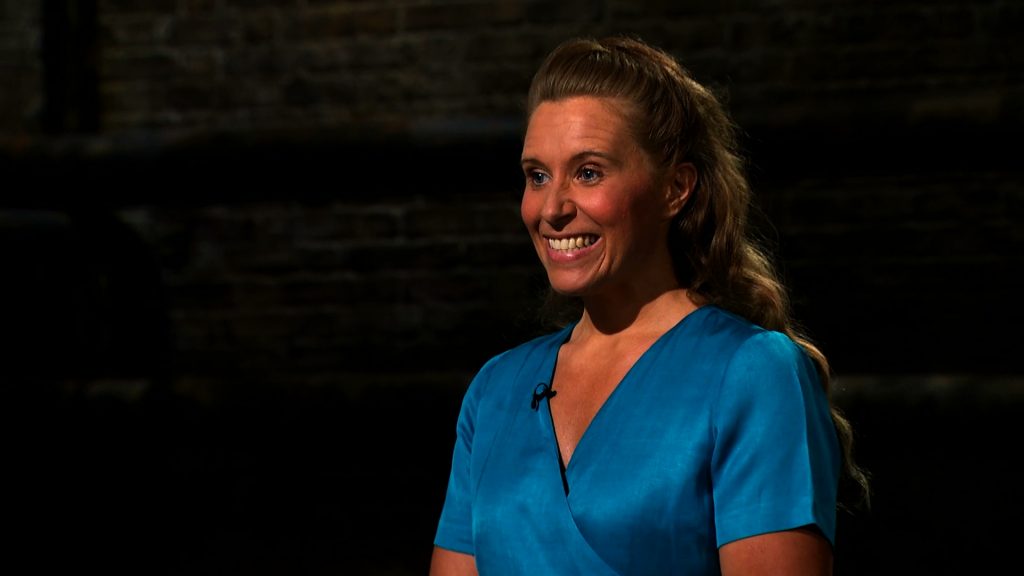Tonight’s episode saw some very fiery questions from the Dragons and emotions run high. Without further ado, let’s dive right into the intellectual property (IP) highlights that caught my attention.
A radiant pitch
First up was Hanna Sillitoe, an entrepreneur who was looking for £60,000 in return for 10% of her wellbeing business. After suffering with painful skin flare ups in the past, Hanna looked for natural remedies. She then developed her eponymous brand offering health retreats, skincare products and online coaching.
Peter Jones started the questioning. He was concerned that using Hanna’s name as the brand could make it difficult to grow the brand as everything would need to involve her. Deborah Meaden also commented that Hanna’s story does not come through in the branding, which she said needed work.
The topic of branding comes up every week in the Den, but why?
A brand is more than just a name, logo or slogan, it is the ‘identity’ of a business and offers customers assurance of what product or service level they can expect to receive. Protecting these elements by registering them as a trade mark can help build credibility, warn off potential copiers and open windows of opportunity such as franchising or licensing.
Business tip 1: Ask yourselves…does your brand support your long term business plan, whether this be an aspiration to expand into different industries or geographically?
Hanna received offers from all Dragons before walking away with a joint deal with Peter and Tej Lalvani of £60,000 for 10% of the business each.
Light up your IP
Next to catch my attention was Darren Morris and his bike light business GloRide. GloRide offer lights that illuminate the side of bicycle frames.

After some initial questioning from Tej Lalvani and Deborah Meaden, new Dragon Sara Davies, voiced her concerns about the possibility of copycats. She stated that Darren’s product is not “patentable” and could be made very easily by big competitors.
A patent protects inventions from being copied or used without the permission of the inventor. You can only apply for a patent if your product is new, inventive and original.
If you are considering applying for a patent we always recommend you speak to a legal professional who can guide you through process. The British Library’s Business & IP Centre in London is also a good place to start. They support entrepreneurs, inventors and small businesses and provide help from initial inspiration to successfully launching and growing a business.
Darren mentioned that although he does not have patent protection, he does have a registered EU design.
Business tip 2: A registered design protects the way a product looks including its configuration, but not how it functions. It gives you the right to prevent others from using it for up to 25 years and needs to be renewed every 5 years.
Unfortunately for Darren, Sara Davies was still concerned over the lack of protection and was enough for her not to invest. All other Dragons followed suit and Darren left without an investment.
A joyful ‘chewn’
Finally, bringing some spice and music to the Den was the very joyful, Will Chew. Founder of Mak Tok chilli paste, he asked for £50,000 in return for 20% of his Malaysian food business.
Starting his pitch with a song, it was clear that Will’s infectious energy immediately reached all of the Dragons. He explained how his pastes are made from a recipe his mother sent to him whilst studying at university.

Although chilli paste is not a new concept, Will could still protect the recipe with a trade secret. In the days before IP rights existed, trade secrets were far more common. They helped businesses gain a competitive edge in the market and distinguish goods from their competitors. Unlike patents, trade marks, designs and copyright, trade secrets have no expiry date. Providing you can keep the information from leaking out, they can last for a very long time. Some of the best kept secrets have survived for centuries, particularly in the food and drink industry.
For more information on how a trade secret can be beneficial to a business, read our Lea & Perrins case study.
Business tip 3: With trade secrets, the only legal form of protection available is the law of confidentiality. You should avoid giving information to as few people as possible, but when necessary, you should use a non-disclosure agreement.
It was hard to see several Dragons back away from giving an offer but fortunately a teary-eyed Sara Davies offered all of the money in return for 33% of his business.
That’s it from me. I wish Will and all the other entrepreneurs the best in their future endeavours and hope they keep IP in mind.
Don’t forget to come back next week to read our highlights unpicking the IP in Episode 4!
Need to learn about IP and how it can help your business? Start with our online support tools.

1 comment
Comment by Mark Garrett posted on
Quite probably the most interesting government blog site that covers Dragon's Den! I actually really enjoyed it. I'll be back. Thank you.